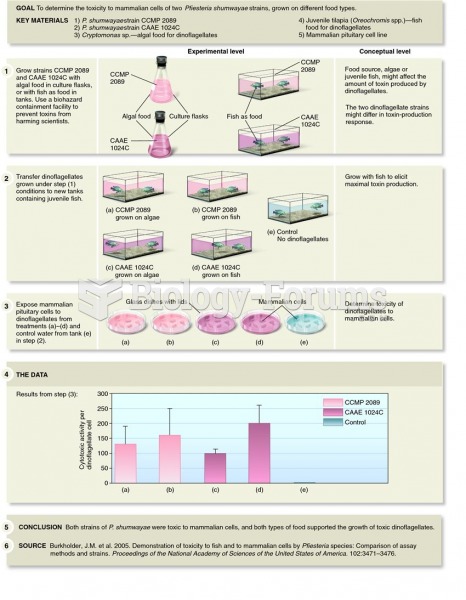|
|
|
Astigmatism is the most common vision problem. It may accompany nearsightedness or farsightedness. It is usually caused by an irregularly shaped cornea, but sometimes it is the result of an irregularly shaped lens. Either type can be corrected by eyeglasses, contact lenses, or refractive surgery.
More than 34,000 trademarked medication names and more than 10,000 generic medication names are in use in the United States.
Persons who overdose with cardiac glycosides have a better chance of overall survival if they can survive the first 24 hours after the overdose.
The first successful kidney transplant was performed in 1954 and occurred in Boston. A kidney from an identical twin was transplanted into his dying brother's body and was not rejected because it did not appear foreign to his body.
The average person is easily confused by the terms pharmaceutics and pharmacology, thinking they are one and the same. Whereas pharmaceutics is the science of preparing and dispensing drugs (otherwise known as the science of pharmacy), pharmacology is the study of medications.
 Burkholder and colleagues demonstrated that some strains of Pfiesteria shumwayae are toxic to fish a
Burkholder and colleagues demonstrated that some strains of Pfiesteria shumwayae are toxic to fish a
 Treatment of Depression with Ketamine The graph shows the effects of ketamine on symptoms of depress
Treatment of Depression with Ketamine The graph shows the effects of ketamine on symptoms of depress





